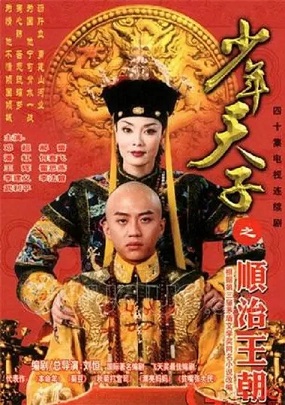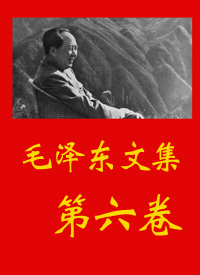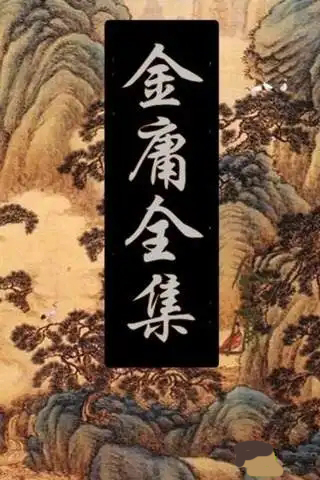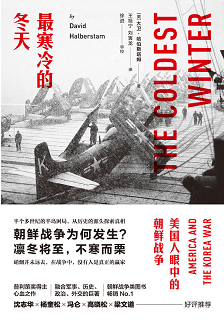Cosette and Marius beheld each other once more.
What that interview was like we decline to say. There are things which one must not attempt to depict; the sun is one of them.
The entire family, including Basque and Nicolette, were assembled in Marius' chamber at the moment when Cosette entered it.
Precisely at that moment, the grandfather was on the point of blowing his nose; he stopped short, holding his nose in his handkerchief, and gazing over it at Cosette.
She appeared on the threshold; it seemed to him that she was surrounded by a glory.
"Adorable!" he exclaimed.
Then he blew his nose noisily.
Cosette was intoxicated, delighted, frightened, in heaven. She was as thoroughly alarmed as any one can be by happiness. She stammered all pale, yet flushed, she wanted to fling herself into Marius' arms, and dared not. Ashamed of loving in the presence of all these people. People are pitiless towards happy lovers; they remain when the latter most desire to be left alone. Lovers have no need of any people whatever.
With Cosette, and behind her, there had entered a man with white hair who was grave yet smiling, though with a vague and heartrending smile. It was "Monsieur Fauchelevent"; it was Jean Valjean.
He was very well dressed, as the porter had said, entirely in black, in perfectly new garments, and with a white cravat.
The porter was a thousand leagues from recognizing in this correct bourgeois, in this probable notary, the fear-inspiring bearer of the corpse, who had sprung up at his door on the night of the 7th of June, tattered, muddy, hideous, haggard, his face masked in blood and mire, supporting in his arms the fainting Marius; still, his porter's scent was aroused. When M. Fauchelevent arrived with Cosette, the porter had not been able to refrain from communicating to his wife this aside: "I don't know why it is, but I can't help fancying that I've seen that face before."
M. Fauchelevent in Marius' chamber, remained apart near the door. He had under his arm, a package which bore considerable resemblance to an octavo volume enveloped in paper. The enveloping paper was of a greenish hue, and appeared to be mouldy.
"Does the gentleman always have books like that under his arm?" Mademoiselle Gillenormand, who did not like books, demanded in a low tone of Nicolette.
"Well," retorted M. Gillenormand, who had overheard her, in the same tone, "he's a learned man. What then? Is that his fault? Monsieur Boulard, one of my acquaintances, never walked out without a book under his arm either, and he always had some old volume hugged to his heart like that."
And, with a bow, he said aloud:
"Monsieur Tranchelevent . . ."
Father Gillenormand did not do it intentionally, but inattention to proper names was an aristocratic habit of his.
"Monsieur Tranchelevent, I have the honor of asking you, on behalf of my grandson, Baron Marius Pontmercy, for the hand of Mademoiselle."
Monsieur Tranchelevent bowed.
"That's settled," said the grandfather.
And, turning to Marius and Cosette, with both arms extended in blessing, he cried:
"Permission to adore each other!"
They did not require him to repeat it twice. So much the worse! The chirping began. They talked low. Marius, resting on his elbow on his reclining chair, Cosette standing beside him. "Oh, heavens!" murmured Cosette, "I see you once again! It is thou! It is you! The idea of going and fighting like that! But why? It is horrible. I have been dead for four months. Oh! How wicked it was of you to go to that battle! What had I done to you? I pardon you, but you will never do it again. A little while ago, when they came to tell us to come to you, I still thought that I was about to die, but it was from joy. I was so sad! I have not taken the time to dress myself, I must frighten people with my looks! What will your relatives say to see me in a crumpled collar? Do speak! You let me do all the talking. We are still in the Rue de l'Homme Arme. It seems that your shoulder was terrible. They told me that you could put your fist in it. And then, it seems that they cut your flesh with the scissors. That is frightful. I have cried till I have no eyes left. It is queer that a person can suffer like that. Your grandfather has a very kindly air. Don't disturb yourself, don't rise on your elbow, you will injure yourself. Oh! How happy I am! So our unhappiness is over! I am quite foolish. I had things to say to you, and I no longer know in the least what they were. Do you still love me? We live in the Rue de l'Homme Arme. There is no garden. I made lint all the time; stay, sir, look, it is your fault, I have a callous on my fingers."
"Angel!" said Marius.
Angel is the only word in the language which cannot be worn out. No other word could resist the merciless use which lovers make of it.
Then as there were spectators, they paused and said not a word more, contenting themselves with softly touching each other's hands.
M. Gillenormand turned towards those who were in the room and cried:
"Talk loud, the rest of you. Make a noise, you people behind the scenes. Come, a little uproar, the deuce! So that the children can chatter at their ease."
And, approaching Marius and Cosette, he said to them in a very low voice:
"Call each other thou. Don't stand on ceremony."
Aunt Gillenormand looked on in amazement at this irruption of light in her elderly household. There was nothing aggressive about this amazement; it was not the least in the world like the scandalized and envious glance of an owl at two turtle-doves, it was the stupid eye of a poor innocent seven and fifty years of age; it was a life which had been a failure gazing at that triumph, love.
"Mademoiselle Gillenormand senior," said her father to her, "I told you that this is what would happen to you."
He remained silent for a moment, and then added:
"Look at the happiness of others."
Then he turned to Cosette.
"How pretty she is! How pretty she is! She's a Greuze. So you are going to have that all to yourself, you scamp! Ah! My rogue, you are getting off nicely with me, you are happy; if I were not fifteen years too old, we would fight with swords to see which of us should have her. Come now! I am in love with you, mademoiselle. It's perfectly simple. It is your right. You are in the right. Ah! What a sweet, charming little wedding this will make! Our parish is Saint-Denis du Saint Sacrament, but I will get a dispensation so that you can be married at Saint-Paul. The church is better. It was built by the Jesuits. It is more coquettish. It is opposite the fountain of Cardinal de Birague. The masterpiece of Jesuit architecture is at Namur. It is called Saint-Loup. You must go there after you are married. It is worth the journey. Mademoiselle, I am quite of your mind, I think girls ought to marry; that is what they are made for. There is a certain Sainte-Catherine whom I should always like to see uncoiffed.[62] It's a fine thing to remain a spinster, but it is chilly. The Bible says: Multiply. In order to save the people, Jeanne d'Arc is needed; but in order to make people, what is needed is Mother Goose. So, marry, my beauties. I really do not see the use in remaining a spinster! I know that they have their chapel apart in the church, and that they fall back on the Society of the Virgin; but, sapristi, a handsome husband, a fine fellow, and at the expiration of a year, a big, blond brat who nurses lustily, and who has fine rolls of fat on his thighs, and who musses up your breast in handfuls with his little rosy paws, laughing the while like the dawn,--that's better than holding a candle at vespers, and chanting Turris eburnea!"
[62] In allusion to the expression, coiffer Sainte-Catherine, "to remain unmarried."
The grandfather executed a pirouette on his eighty-year-old heels, and began to talk again like a spring that has broken loose once more:
"Ainsi, bornant les cours de tes revasseries, Alcippe, il est donc vrai, dans peu tu te maries."[63]
[63] "Thus, hemming in the course of thy musings, Alcippus, it is true that thou wilt wed ere long."
"By the way!"
"What is it, father?"
"Have not you an intimate friend?"
"Yes, Courfeyrac."
"What has become of him?"
"He is dead."
"That is good."
He seated himself near them, made Cosette sit down, and took their four hands in his aged and wrinkled hands:
"She is exquisite, this darling. She's a masterpiece, this Cosette! She is a very little girl and a very great lady. She will only be a Baroness, which is a come down for her; she was born a Marquise. What eyelashes she has! Get it well fixed in your noddles, my children, that you are in the true road. Love each other. Be foolish about it. Love is the folly of men and the wit of God. Adore each other. Only," he added, suddenly becoming gloomy, "what a misfortune! It has just occurred to me! More than half of what I possess is swallowed up in an annuity; so long as I live,it will not matter, but after my death, a score of years hence, ah! My poor children, you will not have a sou! Your beautiful white hands, Madame la Baronne, will do the devil the honor of pulling him by the tail."[64]
[64] Tirer le diable par la queue, "to live from hand to mouth."
At this point they heard a grave and tranquil voice say:
"Mademoiselle Euphrasie Fauchelevent possesses six hundred thousand francs."
It was the voice of Jean Valjean.
So far he had not uttered a single word, no one seemed to be aware that he was there, and he had remained standing erect and motionless, behind all these happy people.
"What has Mademoiselle Euphrasie to do with the question?" inquired the startled grandfather.
"I am she," replied Cosette.
"Six hundred thousand francs?" resumed M. Gillenormand.
"Minus fourteen or fifteen thousand francs, possibly," said Jean Valjean.
And he laid on the table the package which Mademoiselle Gillenormand had mistaken for a book.
Jean Valjean himself opened the package; it was a bundle of bank-notes. They were turned over and counted. There were five hundred notes for a thousand francs each, and one hundred and sixty-eight of five hundred. In all, five hundred and eighty-four thousand francs.
"This is a fine book," said M. Gillenormand.
"Five hundred and eighty-four thousand francs!" murmured the aunt.
"This arranges things well, does it not, Mademoiselle Gillenormand senior?" said the grandfather. "That devil of a Marius has ferreted out the nest of a millionaire grisette in his tree of dreams! Just trust to the love affairs of young folks now, will you! Students find studentesses with six hundred thousand francs. Cherubino works better than Rothschild."
"Five hundred and eighty-four thousand francs!" repeated Mademoiselle Gillenormand, in a low tone. "Five hundred and eighty-four! One might as well say six hundred thousand!"
As for Marius and Cosette, they were gazing at each other while this was going on; they hardly heeded this detail.
珂赛特和马吕斯又相见了。
这次会面的情形,我们不必叙述了。有些事是不该试着描绘的,太阳就是其中之一。
当珂赛特进来时,全家人,连巴斯克和妮珂莱特在内,都聚集在马吕斯的卧室里。
她出现在门口,好象有一个光环围绕着她的脸。
正就在这会儿,外祖父准备擤鼻涕,他一下呆住了,鼻子捂在手帕中,从上面瞧着珂赛特:
“真可爱!”他喊了一声。
接着他大声擤鼻子。
珂赛特如痴如醉,心花怒放,惊恐不安,象进了天堂。幸福使她惊慌失措。她吞吞吐吐,面色一阵白一阵红,很想倒入马吕斯怀里而又不敢。当着这些人的面相爱觉得很害羞。大家不会去怜悯一对幸福的情人;当他们正需要单独在一起相爱时,大家却呆着不走开,其实他们毫不需要别人呀。
在珂赛特后面陪着她进来的是一位白发老人,态度庄重,但含着微笑,可这是一种捉摸不定和沉痛的微笑。这是“割风先生”,也就是冉阿让。
正如看门人所说,他的“衣着很讲究”,全身一套黑色的新西服,系着白领带。
看门人一点也认不出这个整齐的资产者,这个可能是个公证人的人原来就是六月七日①晚上那个可怕的背着死尸闯进门来的人;当时他的衣衫褴褛,满身泥污,丑陋不堪,惊慌失色,满脸鲜血和污泥,架着昏迷的马吕斯;可是他作为门房的嗅觉苏醒了。当割风先生和珂赛特来到时,看门人禁不住私下向他的女人说了这样一句话:“不知道为什么,我总觉得我见过这张脸。”
①原文如此。正确的日期应为六月六日晚上。
割风先生,在马吕斯的房中,好象不和别人在一起似的靠门口呆着,他臂下夹着一个小包,好象一部八开的书,用纸包着,纸发绿色,象霉了似的。
“是不是这位先生手边老带着书?”一点也不爱书本的吉诺曼小姐低声问妮珂莱特。
“就是,”吉诺曼先生听见了她的话也低声回答,“他是一位学者。怎么啦?他有什么不对?我认得的布拉先生也是走路都抱着一本书的。”
于是他一边鞠躬,一边高声打招呼:
“切风先生……”
吉诺曼老爹并非故意这样,但不注意别人的姓名是他的一种贵族作风。
“切风先生,我荣幸地替我的外孙彭眉胥男爵向小姐求婚。”
“切风先生”以鞠躬来致答。
“一言为定了。”外祖父说。
于是他转身向着马吕斯和珂赛特,两臂举起祝福他俩并且叫着:
“允许你们相爱了。”
他们不需要别人说两遍。不管了!两人开始喁喁私语。他们低声说着,马吕斯的胳膊肘支在躺椅上,珂赛特站在他身边。“哦,老天!”珂赛特轻声说,“我总算又见到您了。是你!是您,就这样去打仗!为什么?太可怕了,四个月来我等于死了。哦!您真坏,去参加这次战争!我哪里得罪了您?我原谅您,但是不能再这样干了。刚才有人来叫我们来的时候,我还感到我要死了,但那是快乐得要死。我原先是那么的愁苦!我衣服也没换,一定难看极了。您的家长看见我的衣领都揉皱了,该怎么说呀?您怎么不开口!让我一个人说?我们还是住在武人街。听说您的肩膀很可怕。据说可以放进一个拳头。还听说还用剪刀剪去了肉。这太可怕了。我哭呀哭的,哭得眼睛都肿了。这真怪,一个人能这样痛苦。您的外祖父看起来人很好!您别动,不要撑着手肘,要注意,这样会疼的。哦!我真快乐!不幸的日子结束了!我真傻。我要向您说的话都想不起来了。您还是爱我的吧?我们住在武人街。那儿没有花园。我整天做纱布;这儿,先生,您瞧,这就怪您,我手指上都起了老茧啦!”
“天使!”马吕斯说。
“天使”是语言中唯一屡用不厌的字眼,所有其他的字都被谈恋爱的人重复得无法再用了。
后来,因为有人在旁,他们中止了谈话,只满足于互相轻轻地用手碰一下。
吉诺曼先生转身向那些在房里的人大声说:
“你们尽量大声说话,大家都出点声音,来吧,得有点嘈杂的声音嘛,喂!好让这两个孩子能够随便聊聊。”
于是他走近马吕斯和珂赛特,轻声向他们说:
“别用‘您’这个尊称了,你们不要拘束。”
吉诺曼姨妈惊异地看到光明突然降临到她这陈旧的家中来了,这种惊异毫无恶意,她一点没有用讽刺和嫉妒的枭鸟式的目光来看这对野鸽。这是一个可怜的五十七岁的忠厚长者的呆笨的眼光,她自己错过了青春,现在正在观望爱情的胜利。
“吉诺曼大姑娘,”她的父亲说,“我早已向你说过你会见到这种事的。”
他静默了一下又说:
“瞧瞧别人的幸福呀!”
他又转向珂赛特说:
“她真美丽,真美丽,这是一幅戈洛治的画。你打算一个人独占,坏蛋!啊!调皮鬼,我这一关你总算侥幸逃过,你幸福了,如果我年轻十五岁的话,我们就来比剑,哪一个赢了就归哪一个。你看!小姐,我可爱上你了。这是很自然的,这是你的权利啊!这一来就要举行一个非常好的引人注目的迷人的婚礼啦!圣沙克雷芒的圣德尼教堂是我们教区的,但我会弄到许可证让你们到圣保罗教堂去举行婚礼。那座教堂比较漂亮。那是耶稣会教士建造的。它的建筑优美,正对着红衣主教比拉格的喷泉。耶稣会著名的建筑是在那慕尔,名叫圣路教堂。你们婚后该去参观一下,值得为此去作一次旅行。小姐,我完全同意你们的主张,我赞成女孩子都结婚,她们生来就该如此。有那么一个圣卡特琳,我希望她永远不戴帽子①。做老处女,这不错,但不温暖。《圣经》上说要增加人口。为了拯救国民,我们需要贞德,但是为了增加人口,我们也需要绮葛妮②妈妈。因此,美丽的姑娘们,结婚吧。我不明白做处女有什么意义?我知道她们在教堂里有一间单独的小礼拜堂,她们可以参加童贞圣母善堂;可是,活见鬼,嫁一个漂亮的丈夫,一个正直的男子,一年后,一个金发的婴儿快乐地吮着你的奶,大腿上的脂肪堆得打皱,粉红的小爪子一把一把地乱摸你的乳房,他和晨曦一样欢笑着,这样,总比手中捧着蜡烛在黄昏时去赞颂《象牙塔》③强多啦!”
①圣卡特琳节这一天,年满二十五岁的未婚姑娘要戴上“圣卡特琳便帽”,算是进入老处女行列了。
②绮葛妮(Gigogne),法国民间故事中一位多子女的妇女。
③《象牙塔》,原文为拉丁文Turris eburnea,是赞颂圣母马利亚的祈祷文。
九十岁的外祖父用脚跟转了一个身,上足了发条似的继续说:
就这样,你不用再胡思乱想,
阿尔西帕,真的你不久就要结婚了。
“我想起来了!”
“什么事情,父亲?”
“你不是有一个知己的朋友吗?”
“有,古费拉克。”
“他现在怎么样啦?”
“他已经死了。”
“这样也罢。”
他坐近他们,让珂赛特坐下,把他们的四只手抓在他的起皱的老手中。
“这个小宝贝真俊俏,这个珂赛特真是一件杰作!她是个小小的姑娘,又象一个高贵的夫人。她将来只能是个男爵夫人,这未免委屈了她;她生来就该是侯爵夫人才对。看她的睫毛多美!孩子们,你们好好记住:这是理所当然的。你们相亲相爱吧。要有傻劲。爱情本是人干的蠢事,却又是上帝的智慧。你们相爱吧,可是,”他忽带愁容地说,“真不幸!我此刻才想到,我的一大半钱都是终身年金①;我活着的时候,还过得去,但我死后,大概二十年后,啊!我可怜的孩子们,你们将一无所有!到那时候,男爵夫人,你那纤白的手就要过最操劳的日子啦。”
①积蓄可以变成终身年金,只要放弃本金,只取利息,到死为止。
这时听见有人用严肃安静的声音说:
“欧福拉吉·割风小姐有六十万法郎。”
这是冉阿让的声音。
他一直还没有开过口,大家好象不知道他在那儿,他一动不动站在这些幸福的人后面。
“提到的欧福拉吉小姐是什么人?”外祖父惊愕地问道。
“是我。”珂赛特回答。
“六十万法郎!”吉诺曼先生重复了一遍。
“其中可能少一万四五千法郎。”冉阿让说。
他把那个吉诺曼姨妈以为是书本的纸包放在桌上。
冉阿让自己把包打开,里面是一叠现钞。经过清点后,其中有五百张一千法郎的钞票和一百六十八张五百法郎的钞票,共计是五十八万四千法郎。
“这真是一本好书!”吉诺曼先生说。
“五十八万四千法郎!”吉诺曼姨妈低声说道。
“这样解决了很多问题,对吗,吉诺曼大姑娘?”外祖父又说。“马吕斯这小鬼,他在梦乡树上找到了一个极为富有的姑娘!今天年轻的情侣真有办法!男学生找到了六十万法郎的女学生!小天使比路特希尔德更有办法。”
“五十八万四千法郎!”吉诺曼小姐又轻声重复一遍,“五十八万四千就等于是六十万!”
至于马吕斯和珂赛特,他们这时正互相注视着,对这些细节不很关心。







